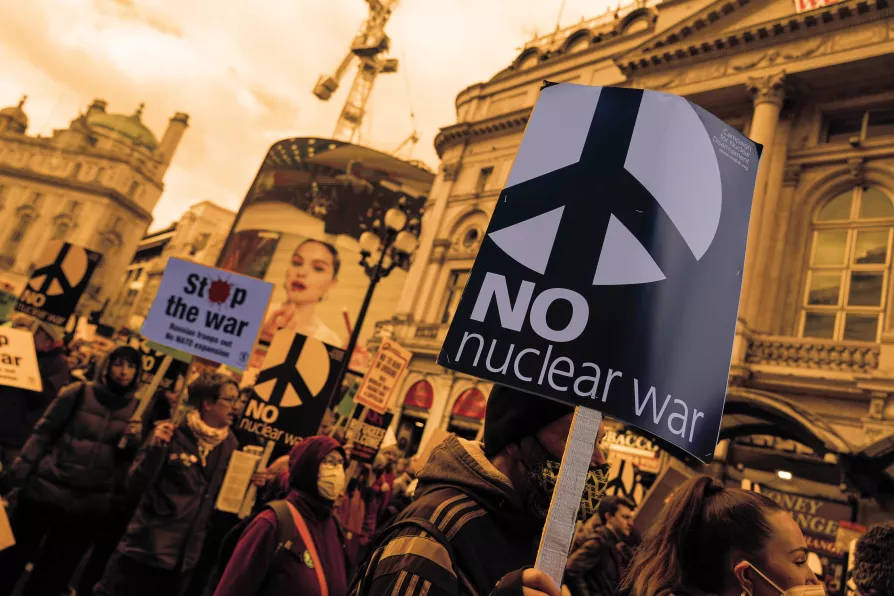John Wojcik pays tribute to a black US activist who spent six decades at the forefront of struggles for voting rights, economic justice and peace – reshaping US politics and inspiring movements worldwide

 As well as causing carnage in Ukraine and threatening to spread conflict, the war in Ukraine is helping to cause chaos in the world economy. The cost-of-living crisis has deeper roots, but sanctions against Russia and the dislocation caused by the fighting have been a major driver of fuel and food inflation that is devastating lives here and around the world.
As well as causing carnage in Ukraine and threatening to spread conflict, the war in Ukraine is helping to cause chaos in the world economy. The cost-of-living crisis has deeper roots, but sanctions against Russia and the dislocation caused by the fighting have been a major driver of fuel and food inflation that is devastating lives here and around the world.
RUSSIA has launched a series of rocket attacks on Ukrainian cities in the last week, killing and wounding hundreds of civilians.
This is further evidence of the brutality of the war they are conducting. Vital civilian infrastructure has also been hit. The Russian army has also launched new offensives in the Donetsk.
These attacks are Vladimir Putin’s response to serious setbacks in the last month including the loss key city of Lyman in the Donbass and the humiliating attack on the vital Kerch Bridge, key communication between Crimea and Ukraine.

Washington plays innocent bystander while pouring weapons and intelligence into Ukraine, just as it enables the Gaza genocide — but every US escalation leaves Ukraine weaker than the neutrality deal rejected in 2022, argue MEDEA BENJAMIN and NICOLAS JS DAVIES

As Britain marks 80 years since defeating fascism, it finds itself in a proxy war against Russia over Ukraine — DANIEL POWELL examines Churchill’s secret plan to attack our Soviet allies in 1945 and traces how Nato expansion, a Western-backed coup and neo-nazi activism contributed to todays' devastating conflict











